Castlevania Requiem is a strong rerelease of two fantastic classic games. The inability to use Symphony of the Night’s original script/voicework is a shame, but the ability to play two of the best Castlevania games on the PS4 is still too good to pass up for one personal preference.
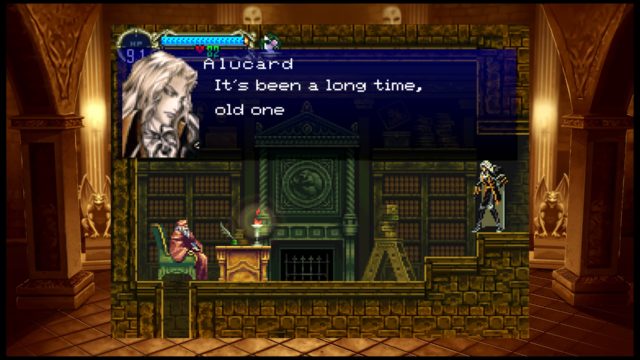
Castlevania Requiem: Symphony of the Night & Rondo of Blood
Developer: Konami
Price: $19.99
Platforms: PS4
MonsterVine was provided with a PS4 code for review
I’m of the (fairly popular) opinion that Castlevania: Symphony of the Night is one of the best games of all-time. Everything about it, from its visuals and sound to its level design and gameplay depth, is top-notch, and a shining example of how fantastic video games as a medium can be. And though, following that glowing write-up, it may sound like an afterthought, Rondo of Blood is a damn good game in its own right. As a big Castlevania fan, I’ve been waiting for these classics to come to modern consoles in one way or another, and though it’s not perfect, Castlevania Requiem is an exceptional way to play two of Castlevania’s finest entries.
Starting chronologically, Rondo of Blood was originally released for the PC in 1993. You play as Richter Belmont (also known as the best Belmont), the latest descendant of the Belmont bloodline to be tasked with battling the Lord of the Night, Dracula. Alongside the young spellcaster Maria, Richter ascends through Dracula’s castle slay the demon lord and save his lover. It’s a standard Castlevania plot, but the goofy retro-anime feel that the dialogue and voicework have elevate the story in its own hammy way.
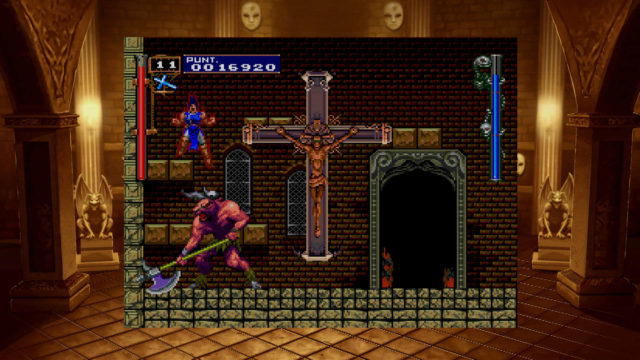
Rondo of Blood is the more straightforward of the two games included in Requiem, as it serves as a platformer first and foremost. Controls are tight, levels are well-designed, and checkpoints are just frequent enough to strike a pleasant balance between challenging and fair. I particularly like the addition of Item Crash, an ability that lets you spend extra hearts to use subweapons in far more cinematic and powerful ways. Rondo is just an excellent and tight Castlevania game; one that I would go so far as to call one of the very best, matched only by Symphony and the Sorrow titles.
“This is the game that truly defined the “Metroidvania” genre, and it still shows twenty years later.“
Symphony of the Night is an entirely different beast than Rondo, as both its story and gameplay are the polar opposite of its predecessor. In Symphony you play as Alucard, the immortal son of Dracula who fought his father alongside Trevor Belmont back in Castlevania III. Five years after the events of Rondo of Blood, Richter Belmont has gone missing while Dracula’s castle has suddenly reappeared. With no Belmont to conquer it, the castle is infiltrated by Alucard shortly after waking from his long sleep. Determined to stop his father once and for all, Alucard climbs the castle while fighting all manner of fearsome creatures.
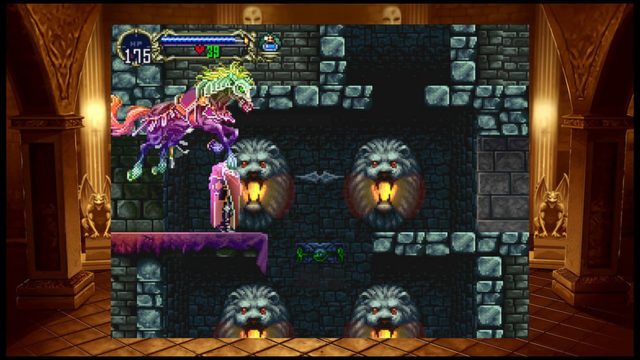
Whereas Rondo focuses on platforming, Symphony focuses on exploration. Every inch of Dracula’s castle is filled with secrets and upgrades, many of which cannot be obtained without using items that are obtained after your first visit to each castle hall. While this may sound tedious to some, it’s actually the exact opposite. Since an ever-expanding map is always at your disposal, returning to find items that were tantalizingly out of reach is immensely rewarding. There are few things as satisfying as finding a new ability and immediately thinking of multiple semi-restricted places you’ve already visited that you can now fully explore, which is at the core of Symphony of the Night. This is the game that truly defined the “Metroidvania” genre, and it still shows twenty years later.
I do wish you could switch between Rondo and Symphony from within each game, as you have to reset Requiem every time you want to switch games. It’s not a major issue, as you’ll likely stick to playing one game at a time, but this still seems like an odd oversight for such a competent collection.

Requiem has a number of different display options for both classic titles. While I found the default aspect ratio to be frustratingly small, I found the “full” option to be far nicer to look at, even if it does cut off a row of pixels or two. The rest of the screen is filled with one of many available background images, which are either fairly muted hallways from Rondo or Symphony, or key art of Richter and Alucard. There are also different visual filters available, which can make each game look like they’re being played on a nostalgic CRT TV or on a terrifyingly flashy screen that is painful to look at. Still, the non-blinding visual options are good enough, so I can’t complain too much.
“I have literally nothing bad to say about either soundtrack, and Requiem has thankfully preserved them perfectly.“
It’s no exaggeration to say that Castlevania as a series has some of the best music tracks in the medium. Iconic tracks like Vampire Killer and Bloody Tears are just the tip of the iceberg, as Rondo and Symphony can attest to. Almost every single song in both games is memorable, and gives off the appropriate atmosphere for each stage, whether it be unyielding tension or bombastic terror. I have literally nothing bad to say about either soundtrack, and Requiem has thankfully preserved them perfectly.
While you can change the voice-acting between English and Japanese, the original English voicework for Symphony of the Night is sadly absent from Requiem. While the revised script and voice-acting is undeniably objectively better, the original voice-acting is iconic. Dracula’s “What is a man?” speech is one of the most quoted monologues in gaming, and the rest of the game is just as entertaining. It’s a lot like how I described Shenmue’s voice-acting back in my review of the HD Collection. I consider Symphony’s goofy voicework to be an essential part of the Symphony experience, so excluding the original voice-acting is a true shame.
 The Final Word
The Final Word
If you haven’t played Rondo of Blood or Symphony of the Night, or want to get into the Castlevania series, or even if you just want to replay some classic masterpieces, Requiem is a great way to do so. While the lack of Symphony’s original voicework is a shame, and the inability to switch games without resetting is a bit annoying, Requiem is still a more than competent collection of two amazing games.
MonsterVine Review Score: 4.5 out of 5 – Great































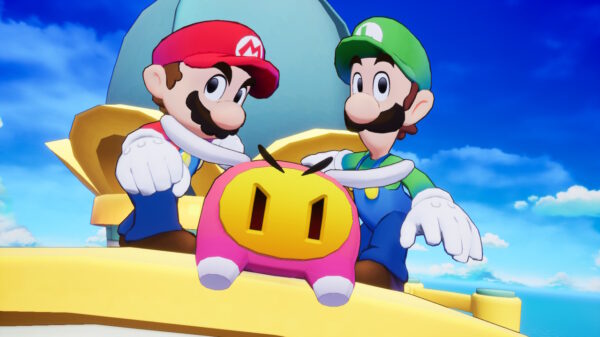






















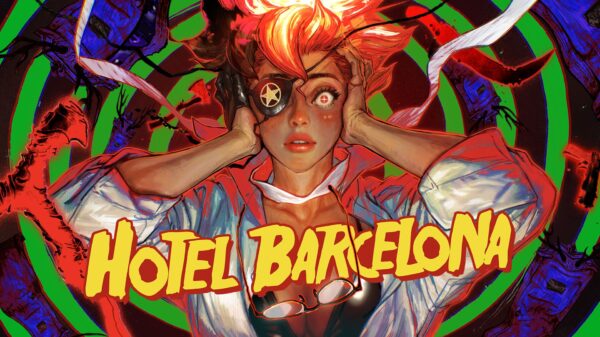



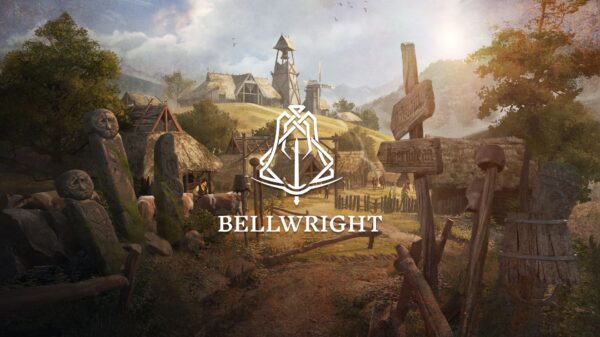



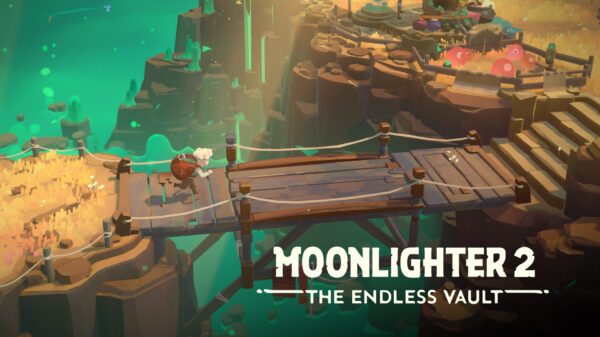
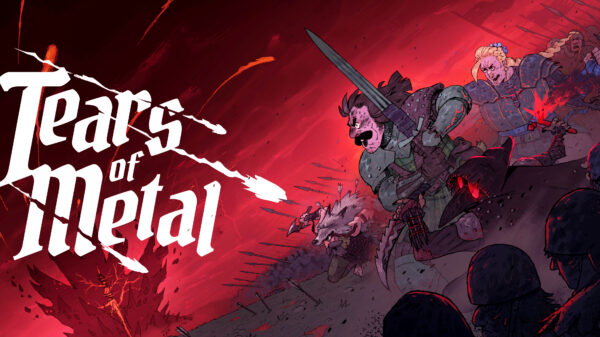


































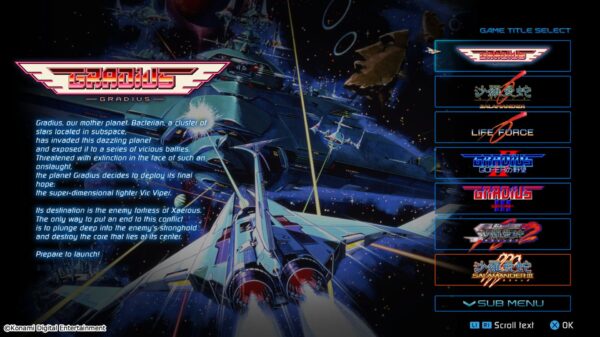



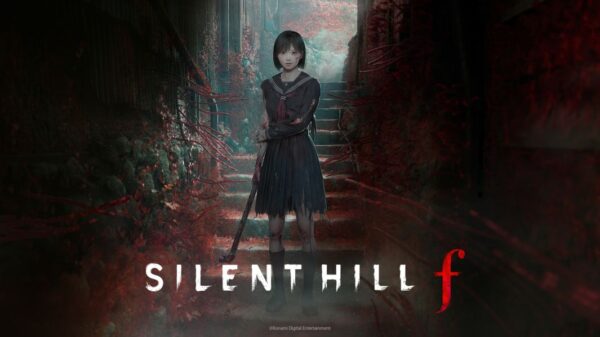



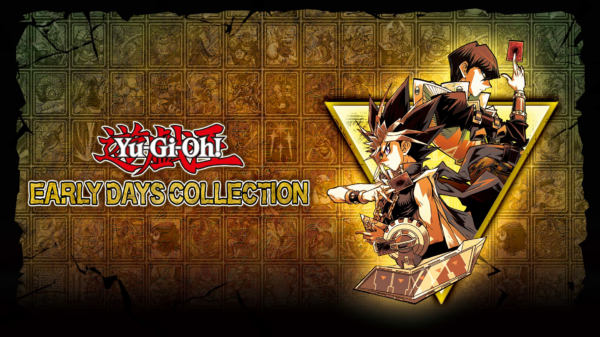

Pingback: Castlevania Anniversary Collection Review - A Wonderful Pile of Classics | MonsterVine